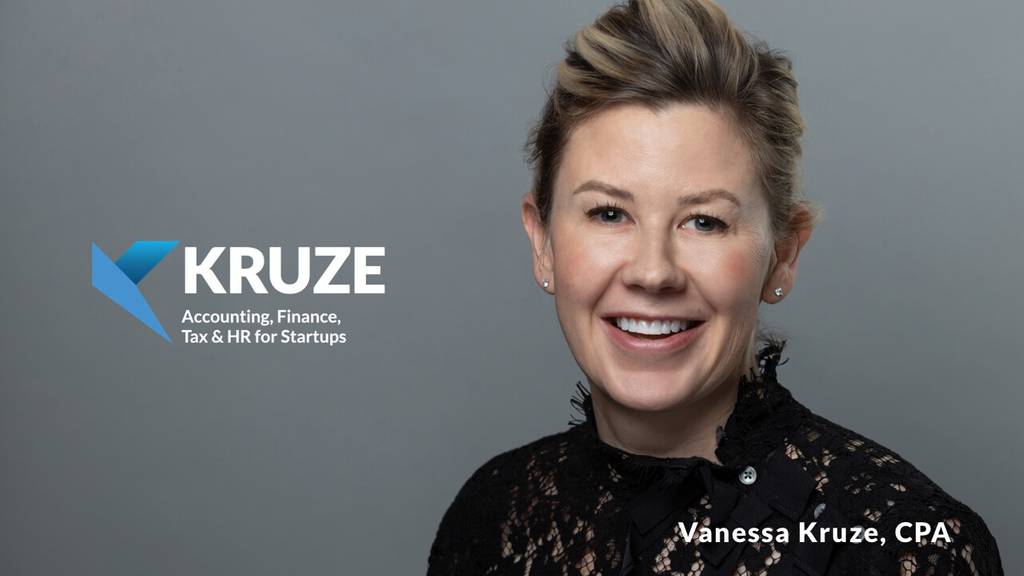Common tax filing mistakes startups make
As a leader in startup tax returns and tax advice, we’ve seen it all.

Vanessa Kruze, CPA
Founder and CEO
Founder and CEO
There are several common mistakes that startups may make during tax season.
Some of these mistakes include:
- Filing late. This is bar none my biggest warning for startup founders - make sure you file every year and with an extension, where applicable. Not filing on time (or an extension) can 1) leave you open to massive penalties ($25K+) if you have International Subsidiaries or International Founders and 2) exclude you from capturing the R&D Tax Credit (up to $250K per year). Even unprofitable startups need to file tax returns, every year that they have been incorporated. The best VCs check for this during due diligence. It is simple to file an extension, which we recommend for the majority of our founders. This gives everyone time to get a solid return put together. Missing a return deadline can be surprisingly easy - use our downloadable tax deadlines to add important deadlines to your calendar. Missing filing deadlines can revoke your Corporate good standing, making you ineligible to receive your next fundraising round! Fixing disqualified corporations is massively expensive and a tremendous stressor during fundraising.
- Forgetting about tax credits and deductions. Startups may not be familiar with all of the tax laws and deductions that apply to their business, which can lead to mistakes on their tax returns and missed opportunities. Many founders are not aware of the tax credits the federal and state governments offer unprofitable startups. The biggest is the R&D tax credit. An R&D tax credit can provide a significant benefit to a startup by reducing its tax payroll liability - a tax even unprofitable companies pay! This can provide a valuable source of funding that can be used to support the growth and development of the startup - up to $250,000, increasing to $500,000 for the tax year 2023!
- Failing to keep accurate and up-to-date records. It is important for startups to keep accurate and complete records of their financial transactions in order to properly prepare their tax returns. Poor bookkeeping can make tax season a mess for a business in several ways. First, if a business does not keep accurate and up-to-date records of their financial transactions, it can be difficult or impossible to properly prepare their tax return. This can lead to mistakes on the tax return, which can result in penalties, interest, or even an audit. Second, poor bookkeeping can make it difficult for a business to take advantage of tax deductions and credits that they may be eligible for. Finally, cleaning up books, finding expenses, etc. can be an added stress and time suck that a founder shouldn’t have to deal with early in the year. (See our list of common bookkeeping mistakes here.)
- Commingling personal and business expenses. VC-backed startups need to keep personal expenses separate from their business expenses for a number of reasons (many of which are ethical!). When it comes to tax time, commingling personal and business expenses can be disastrous. Payments from Delaware C-Corps to founders are likely to be considered taxable compensation by the IRS. If the founders are not careful to separate their personal expenses from the business expenses, they may end up paying taxes on income that they did not actually receive. This can create additional tax liabilities for the founders, which can be financially burdensome.
- Missing state tax filings in states with remote workers. Remote work has clearly taken off, with most of our startup clients now having employees in multiple states. Ignoring state taxes can be a bad idea for a company that has remote workers for several reasons. First, each state has its own tax laws and requirements, and failing to properly comply with these laws can result in penalties and interest for the company. Secondly, ignoring state taxes can create problems for the company’s remote workers. If the company does not properly withhold and pay state taxes on behalf of its remote workers, the workers may end up having to pay additional taxes when they file their own tax returns. This can create financial burdens for the workers and can damage the company’s relationship with them.
- Not hiring an experienced CPA to prepare their tax returns. Many startups may try to save money by preparing their own tax returns, or by using a non-startup focused accountant, but this can be a mistake. Hiring a professional who is familiar with the tax laws and deductions that apply to startups can help to ensure that your tax return is accurate and complete, and that your startup captures all the right tax credits. It can also save a founder valuable time. Additionally, during M&A due diligence, there will be substantial tax diligence conducted by the acquiring company. Founders who are selling their startup for hundreds of millions of dollars don’t need added stress during exit diligence!
- Filing on a cash basis. While filing on a cash basis is advisable for small businesses, the opposite is true for venture backed startups. If you are a startup, your financials and your tax return should be on accrual basis, which is what your board and investors will require. If your accountant filed your startup’s tax return on a cash basis, there is a strong chance that they are not a startup tax expert and that other more serious errors and omissions might be present.
- Filing a state return in Delaware. Almost 100% of venture backed startups are incorporated in Delaware, because that is the legal standard that investors require. However, that doesn’t mean you’ll have to file a state income tax return in Delaware. In fact, 99% of our startups DO NOT require a Delaware tax return because they don’t have a meaningful nexus there, meaning Revenue. Payroll, or Property. If your accountant filed your startup’s tax return on a cash basis, there is a strong chance that they are not a startup tax expert and that other more serious errors and omissions might be present.
- Having a Fiscal Year End other than 12/31. Don’t opt to have an unusual FYE at incorporation, or change it mid-operations. There is no benefit to having an unusual FYE as it opens you up to penalties and missed deadlines, and it’s more arduous and expensive tax preparation for you and your accountant. Don’t do it. More on why changing your fiscal year isn’t a good idea here.
- Letting tax season be stressful. There are many, many things that should stress out startup founders. Getting customers, hiring great talent, raising venture capital… but tax time is not one of them. Preparation, combined with working with an experienced CPA, can make tax time a simple, routine event. Focus on running your business, and leave the stressful accounting work to the experts!
Most common startup tax filing mistakes

- Filing late.
- Forgetting about tax credits and deductions.
- Failing to accurate records.
- Commingling personal and business expenses.
- Missing state tax filings in states with remote workers.
- Not hiring an experienced CPA to prepare their tax returns.
- Filing on a cash basis.
- Filing a state return in Delaware.
- Having a fiscal year other than 12/31.
- Letting tax season be stressful.
We are startup tax return experts. If you have questions, please reach out to us!












